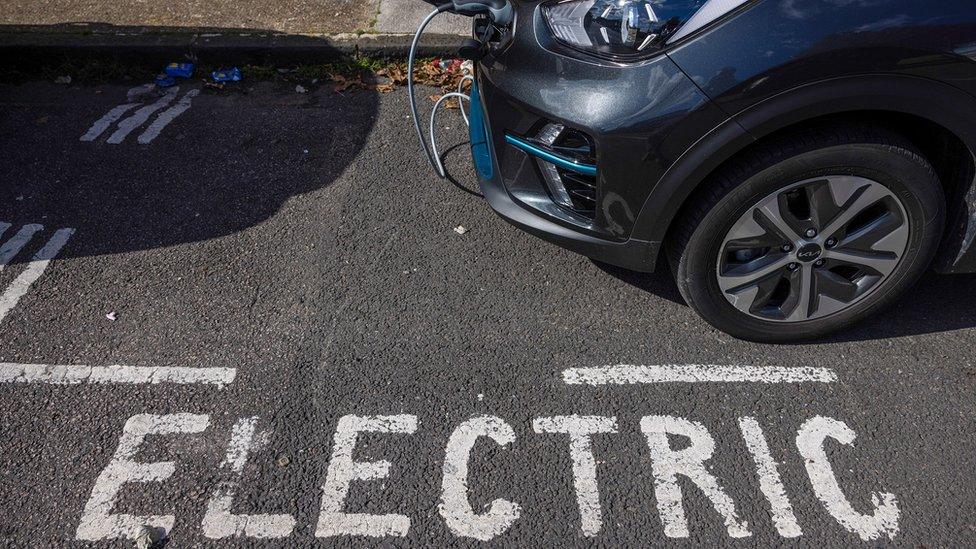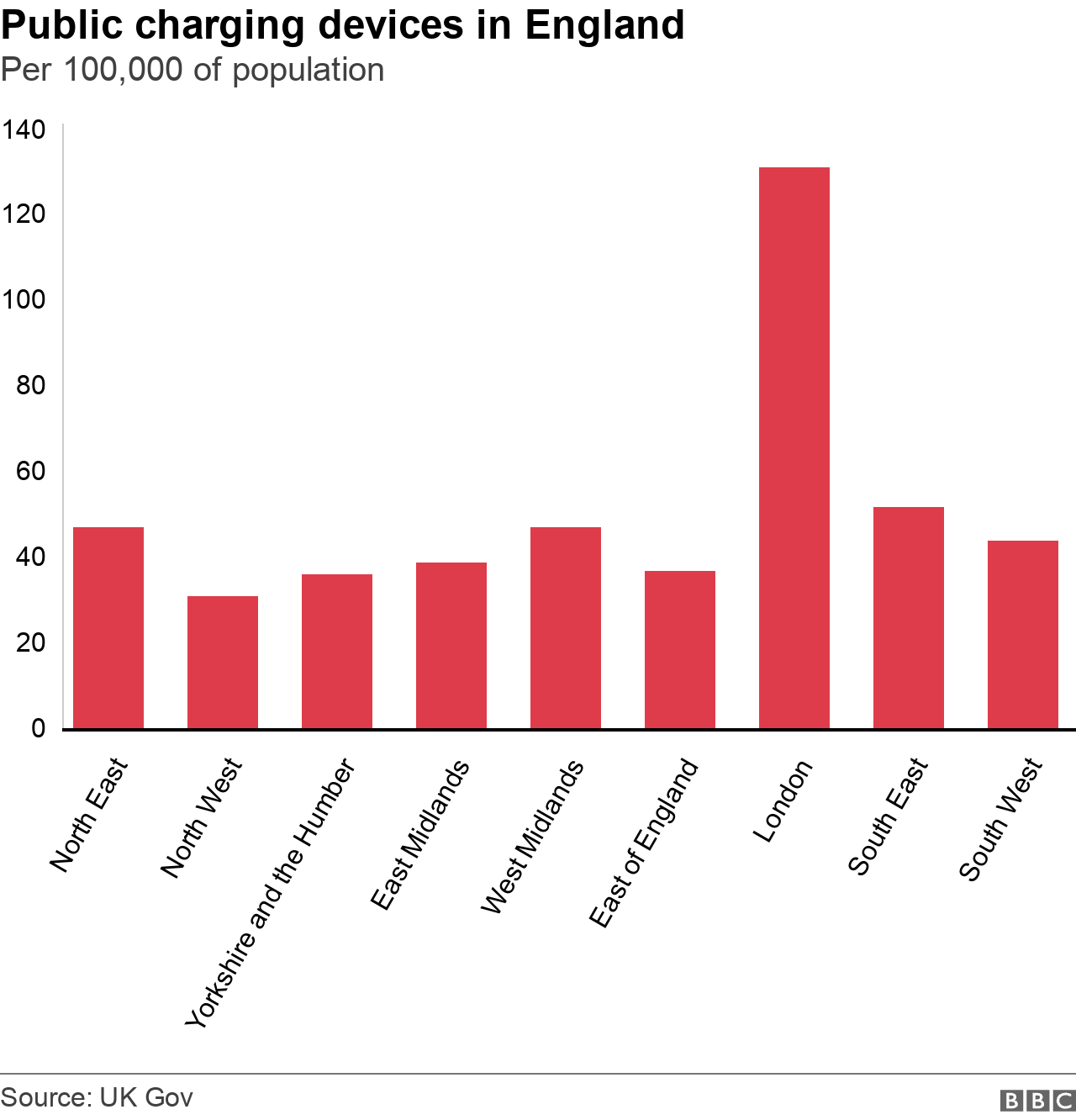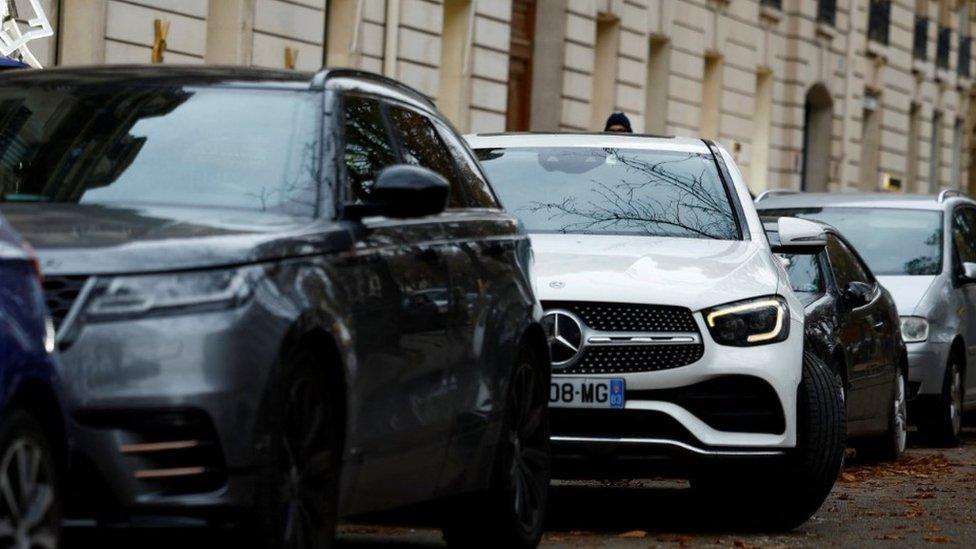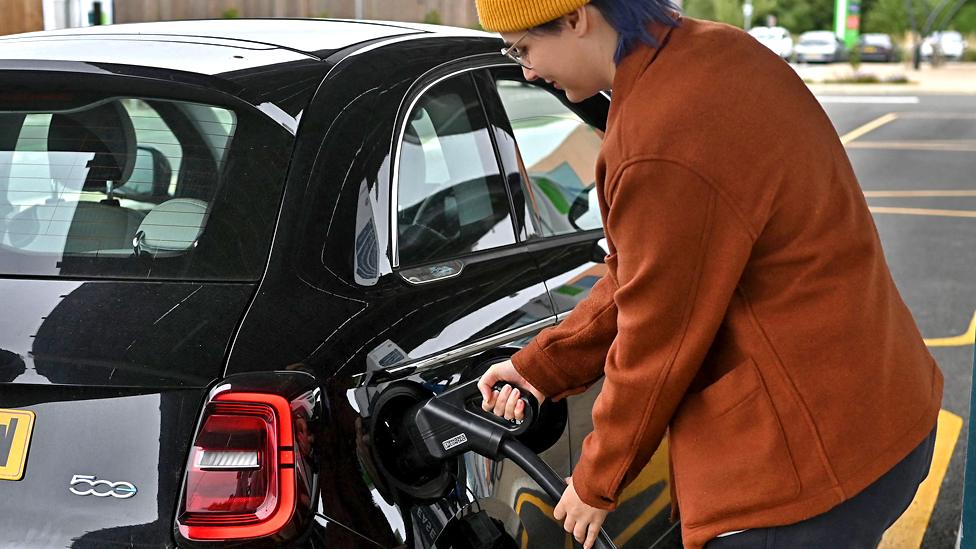Electric cars: Lords urge action on 'misinformation' in press
- Published

One million electric cars have been sold in the UK since 2002
The government must do more to counter "misinformation" on electric vehicles published in parts of the UK press, a Lords enquiry has said.
Despite the UK passing the milestone on Monday of 1m electric cars registered, growth of the sector has flatlined.
The Lords Climate Change Committee urged, external the government to build consumer confidence and push back against what it called mistruths on range and cost.
The government did not comment on this but said £2bn was committed to EVs.
Nearly a quarter of the UK's carbon emissions - responsible for climate change - are produced by road transport, according to the latest figures., external Switching to electric vehicles could help to significantly reduce these emissions, but despite government and industry efforts only about 3% of cars are powered by electricity.
Baroness Parminter, chair of the committee, told the BBC that both government officials and other witnesses to the enquiry had reported reading disinformation on the subject in national newspapers.
"We have seen a concerted effort to scare people... we have seen articles saying that cars are catching fire - but had evidence that the fire risk is absolutely the same as [petrol and diesel] cars," she said.
The Lords committee did not single out any newspaper in particular.
Testifying before the committee, Richard Bruce, Director of Transport Decarbonisation at the Department for Transport, conceded there was a problem.
He said: "I do think there has been an impact from a concerted campaign of misinformation over the last 14 months or so that has been pushing consistent myths about EVs that people absorb and which is reflected in their appetite [for purchasing EVs].
"There is an anti-EV story in the papers almost every day. Sometimes there are many stories, almost all of which are based on misconceptions and mistruths, unfortunately."
Baroness Parminter said the government needed to step in and provide reliable information to consumers.
"In the speech by the PM last year where he said getting to net zero was going to be hard… the message that the public got is that this was less of a priority, I don't need to worry about this now. But net zero is fast approaching and the sooner we do it the cheaper it will be," she added.
The government has made available a list of common questions and answers, external on the transition to EVs, including battery range and chargepoint availability across the country.
As well as tackling misinformation the committee also called on the government to unlock funding more quickly for local authorities to install charging infrastructure. The Lords heard how local authorities had to wait eight months to have their applications processed for the On-street Residential Chargepoint Scheme (ORCS).
The number of public chargers also varies significantly across the country. In the north west of England there are just 31 public chargers per 100,000 population compared with 131 in London.
Cllr Darren Rodwell, transport spokesperson for the Local Government Association, said: "Councils will do what they can in partnership with the private sector to respond to growing demand and local priorities."
But he added: "The best way of supporting the transition to net-zero emissions from local transport is for councils to be given long-term funding certainty."

A Department for Transport spokesperson told the BBC that this week: "The first councils are starting to receive part of the £381m local electric vehicle infrastructure fund alongside new grants to install charge points in state schools and nurseries."
The Lords did recognise the challenges that the government faced with falling tax revenues as the number of EVs grow and said road taxation will need to be "fundamentally redesigned". Currently EV owners are not required to pay excise duty, congestion charge and fuel duty.
But Melanie Shufflebotham, co-founder of ZapMap, a UK EV mapping service, told the BBC that bringing in new taxes for EVs was too early as consumer confidence was still growing.
She offered an alternative solution: "We need to up the taxes on the heavy polluting petrol and diesel cars. It is the heavy vehicles that cause the most damage."
Paris residents just voted to introduce higher parking charges for large SUV petrol and diesel vehicles as part of efforts to recoup public costs from more polluting modes of transport.
Related topics
- Published4 February 2024

- Published21 September 2023
